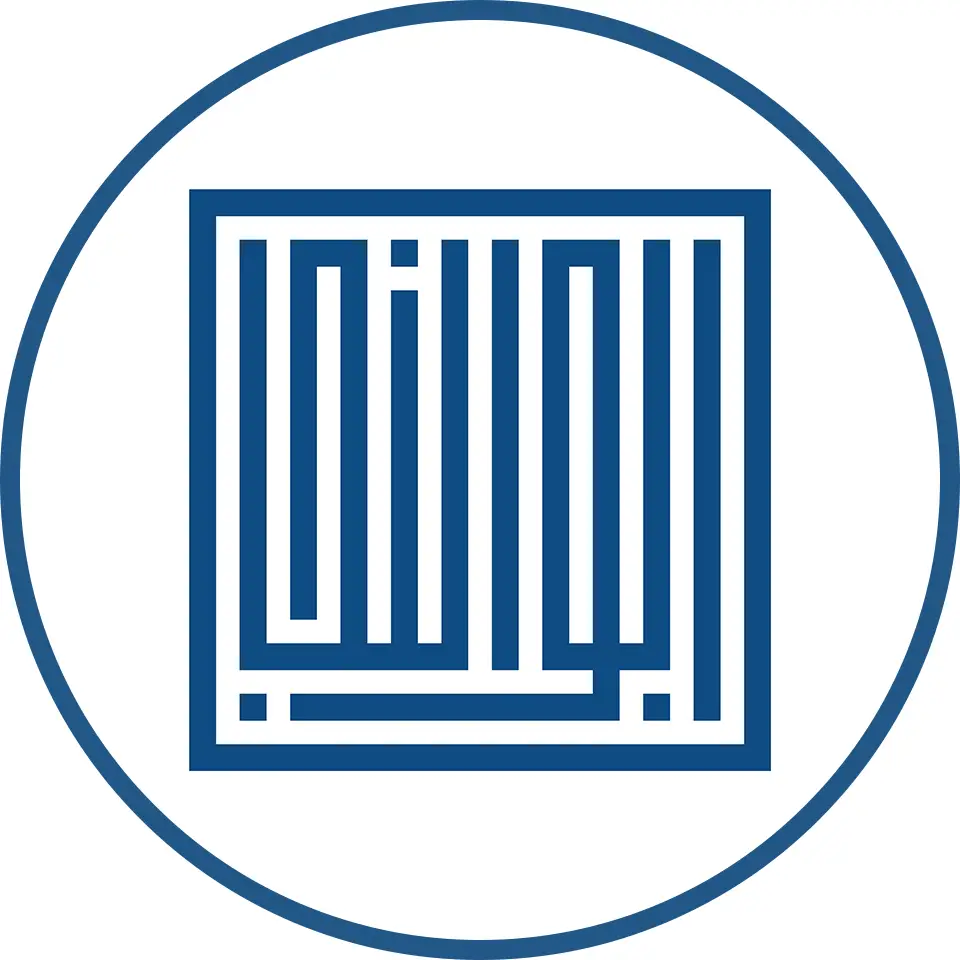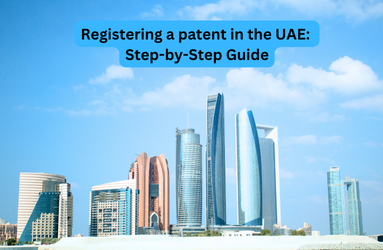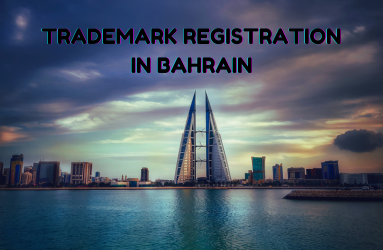Patent Registration and Regulations in the United Arab Emirates

Table of Contents
The United Arab Emirates has changed dramatically in the last three decades. It aspires to be a global business hub with a more vibrant and diverse market and they seem to be precisely where it set out to be. One movement toward this goal is the modernization of patent law. However, patent lawsuits and other methods of compliance are still in their infancy, but further growth is highly apparent.
Patent Law in the UAE: A Brief Timeline
The United Arab Emirates is a member of the Paris Union and has thus implemented a robust patent law that enables inventors and innovators to choose from a broad variety of inventions specified within said governing law - ensuring that patentees introduce their invention to the region with the confidence that their intellectual property rights are well-protected.
The first and foremost patent legislation relating to industrial regulation and protection of patents, industrial drawings, and designs was enacted as Federal Law No. 44 in 1992 and was duly implemented. This was then amended in 2002 and updated in 2006, resulting in the creation of Federal Law No. 17 – which has been unchanged since then.
Who is eligible to receive a Patent in the United Arab Emirates?
The UAE Ministry grants patents to any creative invention that results from an evolutionary process or phase provided that the technology has commercial applications, through documented technicalities.
We will be briefly touching upon integral topics that come together to form the intricate framework of the UAE’s Patent Federal Laws:
- Patent Registration Process
- Patent Terms & Extensions
- Patent Enforcement
- Patent Amendment, Records, and Cancellations
- Patent Licensing
- Patent Opposition & Prosecution
- Patent-Related Border & Control Measures
- Patents: Inequitable Conduct & Antitrust Laws
- Changes to look forward to in the UAE Federal Patent Scene
In pursuit of its vision of diversification into a knowledge-based economy, the United Arab Emirates government continues to foster creativity and entrepreneurship.
Patent Registration and its Process in the UAE
Before proceeding to an official patent application in the UAE, the following must be done in order, to ensure a relatively seamless registration process. We would advise that a patentee consults with a regional patent expert. While the patent registration process is seeming ‘textbook’, make sure that you consult with a regional patent expert, to forecast unforeseen hurdles. Irrespective, here is a straightforward process that one should undergo, when pursuing a patent grant in the UAE or a PCT Patent Application in UAE.
Nonetheless, we will also outline the most common hurdles faced during the process and simple ways to mitigate them:
- The applicant must ensure that the functionalities of his/her invention are documented ‘down to the T’. No detail is non-necessary one. We always recommend that the document is drafted in ‘story form; i.e. what sparked the idea in your head to build a prototype of your innovation, what problems it is meant to solve, and the technical attributes that make it functional, unique and marketable.
- Your invention will ideally come with a physical prototype or formula. It is dire that the technical characteristics are thoroughly documented and should accordingly support all reasons for your invention's practical application, so as to make a strong case with your assigned examiner in the local PTO.
- If you are applying for your patent under a commercial license, you have to ensure that your entity’s article of association is duly prepared and notarized.
- Besides the main technical document, it is required that you submit a summary of evidential data, that assures how your invention can be utilised in an industrial sense. Pro-Tip: This should not exceed 200 words.
- In the case that you have appointed a patent agent to present your application before local authorities (which we hope you do), you must secure a duly legalised and notarised Power of Attorney, in favor of your appointed patent representative.
- In the case that your invention is an extension of a previously granted patent, you will have to obtain a letter of consent from the original owner of the prior art - this is crucial so as to avoid any immediate rejections.
- In the case of your patent being granted in other jurisdictions, outside of the UAE, you must also present attested copies of said granted patent certificates.
Patent Terms in the UAE
A granted patent in the UAE is valid for a total of 20 years, from the official date of filing. Patent terms after the 20-year mark are not eligible for an extension, as per UAE Federal laws.
Patent Status: Granted
The patent grant is printed and distributed in the Industrial Property Publication and the UAE’s Official Gazette until it has been further authorised.
Upon issuance of this submission, the Ministry shall initiate an investigation to assert and determine that the grant duly conforms with federal rules of the statute and that the innovation or method is in fact innovative, original, and of its industrial purpose.
Patent Rejections and Appeals
UAE IP legislation grants the UAE Patent Office the authority to dismiss or reject any submission that does not comply with the rules outlined by the Federal Patents Statute.
Rejections are subject to judicial review, but patentees must be aware that all appeals must be presented within a timeframe of sixty days. Approved grant applications are published in the Federal Patent Register, which is accessible by all members of the public, who have the legal right to lodge a challenge against the UAE Patent Offices’ issuance of that patent. But if no dispute is raised throughout the sixty-day timeframe, the patent certificate is granted.
Patent Enforcement in the United Arab Emirates
One of the most prominent inquiries we get from fellow IP practitioners outside and within the UAE is whether a patent can be enforced in the circumstance of a detected violation and whether the applicant has a recourse between certain judiciary bodies.
The good news is that a UAE-based patent will almost always be upheld and enforced, as long as the dispute is brought before a qualified judicial body at a judicial state stage. To be far more precise and for the sake of further clarity:
- Patent enforcement sought in the Emirates of Dubai, Abu Dhabi, and Ras Al Khaimah will be expected to be presented before federal courts operated independently by each of the cities mentioned.
- Patent enforcement in Sharjah, Umm Al Quwain, Fujairah, and Ajman will be brought before the country's Federal court.
If a claimant is still unsure of which judiciary prosecuting body to use, it is worth mentioning that the judicial circuit of the Federal court system in Abu Dhabi provides the judges with Intellectual Property technical education, in relation to all facets of Intellectual property.
This enables the respective jurors to be highly versed with a pragmatic resolution of patent-related litigation disputes and not to the civil conflict itself.
Enforcement in Non-Federal Tribunals Vs. Federal Tribunals
Along with the federal magistrates mentioned previously, cases involving patent violations occurring within or from the DIFC* and ADGM** can be brought directly before their respective Courts by the designated Commissioner of Intellectual Property. These discrepancies fall into the following categories (and are not confined to):
- Patent-related Injunctions
- Claims following infringement damage
- Patent-related Appeals.
*The Dubai International Financial Center (DIFC) is a free zone situated in the emirate of Dubai and has formally officiated its own Intellectual Property Laws in 2019. The proceedings are conducted in English and are governed by English common law, as opposed to Federal statutes.
**The Abu Dhabi Global Market is an international financial hub for domestic, regional, and international entities and has been operational as of 2015. It is a self-contained body that enables the holding of Intellectual Property through SPVs (Special Purpose Vehicles).
Often asked by foreign corporate entities and new market entrants wishing to procure patents for the innovative technologies, are major discrepancies and key distinctions between Federal Intellectual Property Laws, DIFC Intellectual Property Laws, and ADGM Intellectual Property Regulations:
While the key distinctions are quite vast, the most notable differences are as follow:
- UAE Federal Patent Law: Patent conflicts arising in the state of the UAE are regulated by the federal UAE Patent Law, and cases must be properly and lawfully interpreted into Arabic, in accordance with the standard civil law framework.
- DIFC: In comparison to federal state rules, patent cases brought before DIFC courts must be framed in English and uphold English common law.
- ADGM: By comparison, ADGM operates within a common-law scheme, separate from the onshore UAE civil law system, and does not enforce UAE civil and commercial rules. Patent prosecution laws are still being developed, but they bear a strong resemblance to DIFC laws since they are both founded and operate within English Common Law.
The Patent Prosecution Process
In the form of regulatory counsel before Federal Courts, it should be acknowledged that the only one permitted to represent you before a state prosecutor is a local prosecutor with public privilege and public immunity.
There are no mandatory procedures that need to be undertaken before proceedings are commenced. Once the statement of claim is filed and the court fees are paid, the first hearing will be scheduled.
“What kind of financial expenditure can you initially expect, to officially activate patent-based litigation?
“The sum of court fees due is assessed by the claim's valuation; and due to the technical nature of patent litigation, the judiciary would typically retain a subject matter consultant to render an unbiased opinion - who might even incur their own service charges against their technical advisory; which the claimant must also cover.”
Patent Amendment and Recordals: As Per UAE Federal Laws
Patents that have been granted within the UAE are subject to amendments, recordals, and full and/or partial cancellations when the patent holder voluntarily proceeds to the local PTO.
The grounds of amendment or recordal are quite lenient and straightforward, given appropriate documentation is presented at the time.
Partial or Full Cancellation Of A Patent: The UAE Federal law shall allow partial or full cancellation of a patent, given that the patent holder provides proof that the cancellation does not, in fact, harm or damage the rights of any other person/entity - in the case that the patent is owned by more than one person. Should there be another party involved, written consent must be provided, upon submitting this request to the ruling federal body.
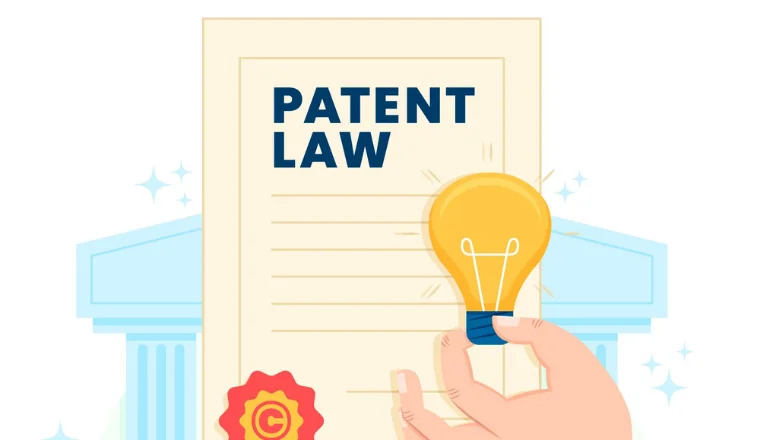
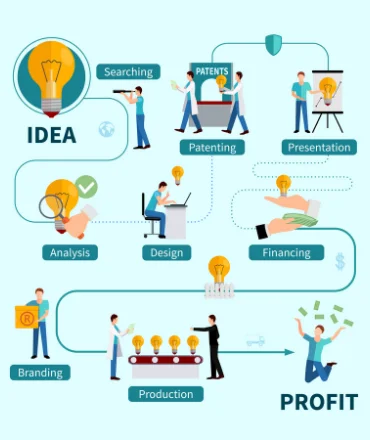
Patent Licensing
On a mission to become a global hub for transnational commercial transactions, the United Arab Emirates has incorporated very fair and just laws to safeguard all parties involved in licensing any type of Intellectual Property.
When it comes to patent licensing and as per UAE IP Federal laws, all parties involved in the licensing process are given full disclosure to determine the terms of the respective patent licensing agreement. These terms include the extent of exclusivity, geographical territory for use, and the overall scope of the licensing agreement.
As lenient as this may seem, reasonable guidelines have been set in place to safeguard both licensor and licensee:
- The License Agreement must not exceed the patents’ remaining validity time frame
- All Patent License agreements must be duly signed and notarised before the official notary public, with the presence of all appointed signatories.
- All patent license agreements must be legally translated into Arabic.
- Once all formalities are in place, it is required that the agreement is duly recorded and lodged in the relevant ministry.
“An unused or uncommercialised granted patent could result in being legally licensed to a worthier owner.”
An important point that we feel compelled to touch upon is the concept of ‘Commercial exploitation’.
This is a mandatory regulation under Article 24 of the Legislation, which stipulates that if a patentee ceases or discontinues commercial use of the granted patent, or fails to delegate the patent to an eligible assignee to carry out patent commodification, the patent in dispute will be legally liable to be arbitrarily assigned and granted to a party deemed to be suitable. This is referred to as 'Compulsory Licensing.'
This will almost certainly compel a qualified judicial body to issue a patent license in situations where patent owners have refused to commercially use or license the patent and where the conditions justify it.
Patent Prosecution and Opposition
Any new innovation that results from an original concept or imaginative action is eligible for patent protection in any area of technology, providing that it has a theoretical base and is worthy of security through industrial patents in the United Arab Emirates.
Under the direction of the Directorate of Industrial Property, the Ministry of Finance, and the Industry applications, the Industrial Property Offices regulates patents and designs.
Exclusions from prosecution and Opposition:
- Under Article 6 of the Patent Act of the UAE, in respect of patent enforcement and challenge, the following subject matter is excluded:
- Varieties of plant types, animal species, or organic systems of plant or animal production.
- Methods of diagnosis, medications, and surgery used for human and animals’ welfare and health
- The ideas, observations, and techniques of science and mathematics.
- Tutorials, guidelines, or procedures for trade, carrying out cognitive tasks, or playing sport.
- Inventions that can contribute to a breach of national security or public morality.
- Certain protocols referred to, in Article 6.2 shall apply to inventions relating to national security.
Current Developments in Patent Scene in the United Arab Emirates
In November 2019, the DIFC Intellectual Property Legislation was enacted that included clauses that provide authority over patent litigations ruled by the law (including the patent violation inside or from the DIFC) to the DIFC Commissioner for Intellectual Property and the DIFC Courts.
The annuity payments for UAE patents granted and trademarks were canceled until further notice in July 2019 by Decree 51/2019. However, in order to preserve their patents, rights holders do have to submit "business loss fees" only through the web platform.
It is anticipated that over the next few years, a new UAE patent law will be published. The Patent Office sent proposed legislation for consultation in 2019 to the legal community. The UAE cabinet of ministers is eagerly pending consent. The proposed act is intended to be more in accordance with worldwide patent laws and has regulations including exempt subjects, subsidiary implementations, and other sectors not governed by existing legislation.
Conclusion
We have been pleased to compile this document for anyone who seeks a more detailed description of how patents operate in the UAE. We are proud to share our hard-earned knowledge for the growth and progress of the creative culture.
Read our article on whether "to patent or not".
If you still have any unanswered questions regarding patenting statutes in the UAE, our lines are open. Drop a line at [email protected] or give us a call at +9714 282 2677 and we will ensure all your doubts are clarified.
Frequently Asked Questions
Who is eligible to receive a Patent in the United Arab Emirates?
The UAE Ministry grants patents to any creative invention with commercial applications, documented through technicalities.
What is the patent registration process in the UAE?
The process involves detailed documentation of the invention, including functionalities, a physical prototype or formula, and compliance with legal requirements.
How long is a granted patent valid in the UAE?
A granted patent in the UAE is valid for 20 years from the official filing date, with no extensions beyond this period.
What is the process for patent enforcement in the UAE?
Patent enforcement involves presenting the case before qualified judicial bodies, depending on the emirate, and can include federal and non-federal tribunals.
Can patents be amended or canceled in the UAE?
Yes, patents can be subject to amendments, recordals, and full or partial cancellations based on certain grounds and with proper documentation.
How is patent licensing regulated in the UAE?
Patent licensing terms, including exclusivity, territory, and scope, are determined through full disclosure, and agreements must adhere to specific guidelines.
What is the concept of 'Compulsory Licensing' in the UAE?
If a granted patent remains unused or uncommercialized, it may be subject to compulsory licensing, allowing a more suitable party to take over.
What is excluded from patent prosecution and opposition in the UAE?
Exclusions include certain plant types, animal species, medical methods, scientific and mathematical ideas, trade procedures, and inventions against national security or public morality.
Are there any recent developments in the UAE patent scene?
Recent developments include the enactment of DIFC Intellectual Property Legislation in 2019 and the anticipation of a new UAE patent law more aligned with international standards.

